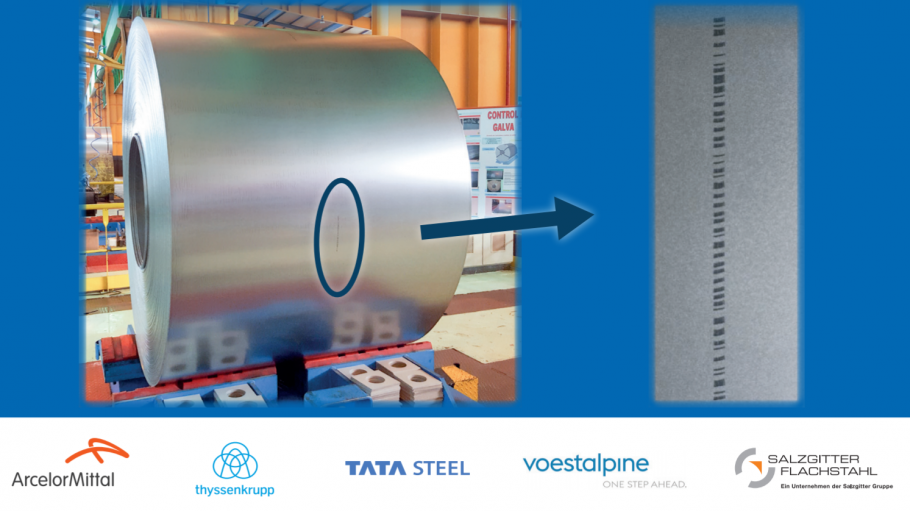
Publications » Brochures, booklets or fact-sheets » Quality Tracking System for Steel Coils
Quality Tracking System for Steel Coils
Downloads and links
Recent updates

Flat steel products, such as sheets, are often delivered to customers as coils. Coils are easier to transport as several hundred metres of steel can be shipped in a relatively compact load. However, steel coils can have isolated quality issues – imperfections – at points along their length. These isolated flaws can disrupt customers’ processes as finished parts containing the imperfections may be rejected during quality control.
As early as the 1990s, steel coil users began expressing their interest in an information tracking mechanism capable of tracing these imperfections. Steel producers have worked together since then to develop a technology that can track coil information with a high degree of precision. This technology is called the Quality Tracking System. The main function of the Quality Tracking System is that it can provide additional information about the coil without requiring changes to any quality standards.
In addition, the Quality Tracking System can also be an enabler for companies that are looking to transition to Industry 4.0.
Download this publication or visit associated links
Brussels, 26 February 2026 — Europe’s steel industry has warned that the current draft Industrial Accelerator Act could direct public support for low-carbon steel to producers outside the European Union, unless lawmakers include and tighten ‘Made in Europe’ provisions.
Brussels, 24 February 2026 - Europe’s energy-intensive industries have set out a series of proposals to ensure that the EU’s upcoming Electrification Action Plan delivers on its objectives to stimulate and boost electricity consumption in industry. In a joint position paper, industries warn that persistently high electricity prices risk undermining industrial competitiveness and decarbonisation efforts. They call for a policy framework that will enable EU industry in pursuing decarbonisation and industrial competitiveness.
Energy-intensive industries (EIIs) provide direct employment to around 2.6 million people in the EU and represent the foundations of critical and strategic value chains for the EU economy and society. The current economic and energy outlook of the European Union is making investments in electrification and the continued business operation of our sectors at serious risk, should the energy-cost challenge not be solved.